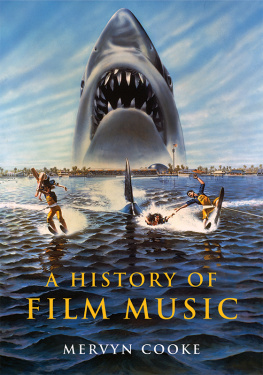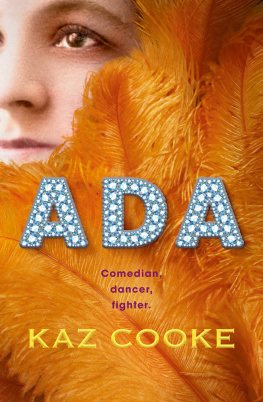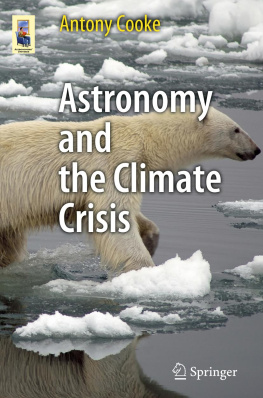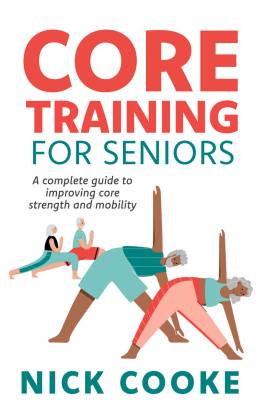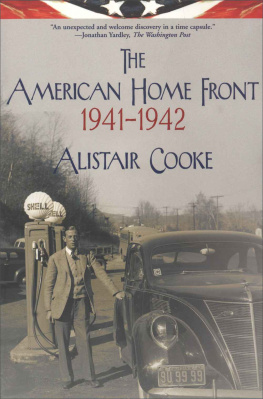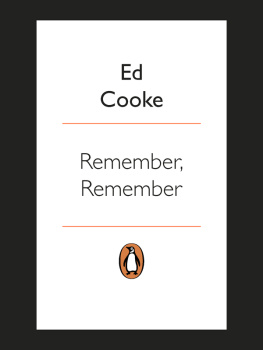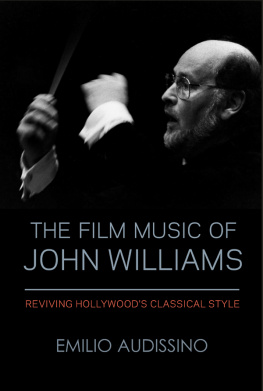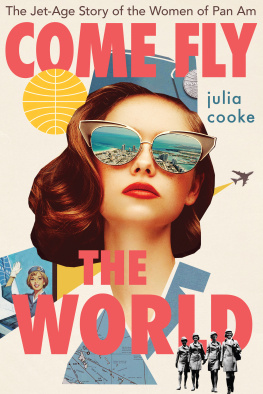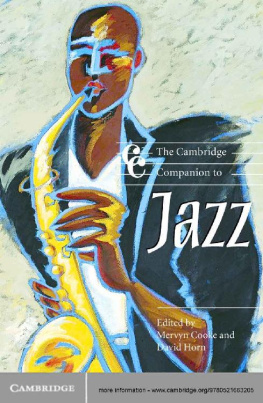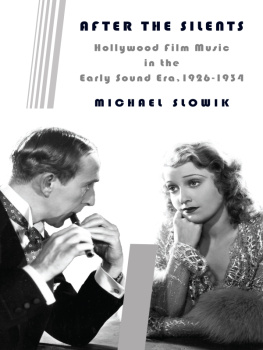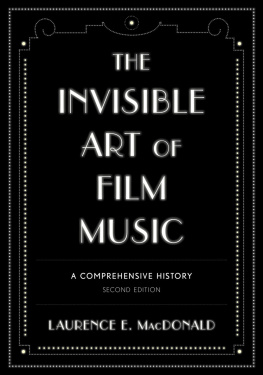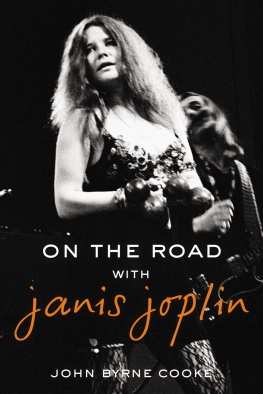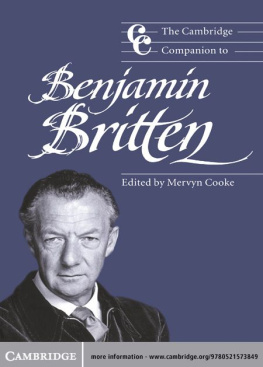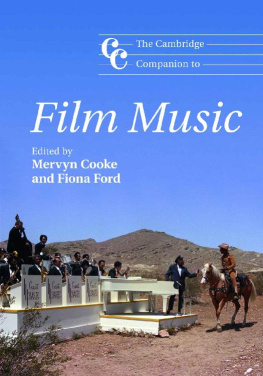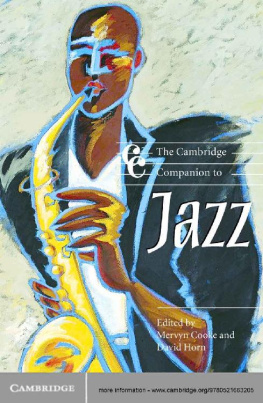Cooke - History of Film Music
Here you can read online Cooke - History of Film Music full text of the book (entire story) in english for free. Download pdf and epub, get meaning, cover and reviews about this ebook. year: 2008, publisher: Cambridge Univ Pr, genre: Non-fiction. Description of the work, (preface) as well as reviews are available. Best literature library LitArk.com created for fans of good reading and offers a wide selection of genres:
Romance novel
Science fiction
Adventure
Detective
Science
History
Home and family
Prose
Art
Politics
Computer
Non-fiction
Religion
Business
Children
Humor
Choose a favorite category and find really read worthwhile books. Enjoy immersion in the world of imagination, feel the emotions of the characters or learn something new for yourself, make an fascinating discovery.
- Book:History of Film Music
- Author:
- Publisher:Cambridge Univ Pr
- Genre:
- Year:2008
- Rating:3 / 5
- Favourites:Add to favourites
- Your mark:
- 60
- 1
- 2
- 3
- 4
- 5
History of Film Music: summary, description and annotation
We offer to read an annotation, description, summary or preface (depends on what the author of the book "History of Film Music" wrote himself). If you haven't found the necessary information about the book — write in the comments, we will try to find it.
Cooke: author's other books
Who wrote History of Film Music? Find out the surname, the name of the author of the book and a list of all author's works by series.
History of Film Music — read online for free the complete book (whole text) full work
Below is the text of the book, divided by pages. System saving the place of the last page read, allows you to conveniently read the book "History of Film Music" online for free, without having to search again every time where you left off. Put a bookmark, and you can go to the page where you finished reading at any time.
Font size:
Interval:
Bookmark:
A History of Film Music
A History of Film Music provides a comprehensive and lively introduction to the major trends in film scoring from the silent era to the present day, focusing not only on dominant Hollywood practices but also offering an international perspective by including case-studies of the national cinemas of the United Kingdom, France, India, Italy, Japan and the early Soviet Union. The book balances wide-ranging overviews of film genres, modes of production and critical reception with detailed non-technical descriptions of the interaction between image track and soundtrack in representative individual films. In addition to the central focus on narrative cinema, separate sections are devoted to music in documentary and animated films, film musicals and other genres related to theatrical traditions, as well as the uses of popular and classical music in the cinema. The author analyses the varying technological and aesthetic issues that have shaped the history of film music, and concludes with an account of the modern film composers working practices.
MERVYN COOKE is Professor of Music at the University of Nottingham. His books include studies of Brittens Billy Budd and War Requiem, Britten and the Far East, Jazz and The Chronicle of Jazz, and he has edited The Cambridge Companion to Twentieth-Century Opera, The Cambridge Companion to Benjamin Britten and, with David Horn, The Cambridge Companion to Jazz. He is the author of the article on film music in the New Grove Dictionary of Music, and is also active as a pianist and composer.
A History of
FILM MUSIC
............
Mervyn Cooke

CAMBRIDGE UNIVERSITY PRESS
Cambridge, New York, Melbourne, Madrid, Cape Town, Singapore, So Paulo,
Delhi, Mexico City
Cambridge University Press
The Edinburgh Building, Cambridge CB2 8RU, UK
Published in the United States of America by Cambridge University Press, New York
www.cambridge.org
Information on this title: www.cambridge.org/9780521811736
Mervyn Cooke 2008
This publication is in copyright. Subject to statutory exception and to the provisions of relevant collective licensing agreements, no reproduction of any part may take place without the written permission of Cambridge University Press.
First published 2008
Third printing with corrections 2010
5th printing 2012
Printed and bound in the United Kingdom by the MPG Books Group
A catalogue record for this publication is available from the British Library
Library of Congress Cataloguing in Publication data
Cooke, Mervyn.
A history of film music / Mervyn Cooke.
p. cm.
Includes bibliographical references and index.
ISBN 978-0-521-81173-6 (hardback) ISBN 978-0-521-01048-1 (pbk.)
1. Motion picture music History and criticism. I. Title.
ML2075.C68 2008
781.5'4209 dc22 2008019383
ISBN 978-0-521-81173-6 hardback
ISBN 978-0-521-01048-1 paperback
Cambridge University Press has no responsibility for the persistence or accuracy of URLs for external or third-party internet websites referred to in this publication, and does not guarantee that any content on such websites is, or will remain, accurate or appropriate.
For Sally
Contents
Illustrations
Preface and acknowledgements
As cinema moves into its second century, it is surprising that relatively few comprehensive historical accounts of film music have so far appeared in print. This is by no means to say that there is a dearth of perceptive and thought-provoking writing about film music: on the contrary, since the 1980s the field has become a rich growth area in both academic and popular circles, and an ever-growing understanding and appreciation of the filmic mediums often strikingly varied musical potentialities have helped rescue the film musicians craft from the stigma of hack commercialism which constantly blighted its reputation from the earliest years. At the same time, and equally late in the day, film scholars have begun to draw wider attention to the need not only to regard a films soundtrack as an indivisible composite element, but also to consider it as at least equal to and in some cases arguably more important than the moving images which, as cinemas raison dtre, were traditionally viewed as its overridingly dominant parameter. Hopefully the days when it was possible to devote an entire volume to a discussion of the aesthetics of cinema without adequately addressing either its sound or music (for an example, see Aumont et al. 1983) are long since gone.
Of the many varied histories of film music that could, and hopefully will, be written, the present enterprise aims to provide a straightforward introduction to the development of film-music techniques in a selection of Anglophone and non-Anglophone cinemas, with emphases placed on the practical roles of composers, musicians, music directors and supervisors, their changing working conditions, cultural contexts and creative aspirations, and the various ways in which their work has been received. At the risk of stating the obvious, this book is neither a history of film-music theory nor a history of film-music literature, though seminal observations from each are introduced liberally throughout the text where they are directly relevant to the practice and consumption of such music at various points in its history. Readers desiring coherent accounts of the film-music literature are recommended to consult the admirable critical summaries by Martin Miller Marks (1997, 325) and Robynn Stilwell (2002). Among the most readable and concise overviews of general trends in film-music theory is that offered by Annette Davison in the first three chapters of her recent book on contemporary film (2004).
For the era of silent film (). Others, notably in France (Chapters 2 and 8), refused to allow dialogue to achieve the overarching supremacy which was later to be one of the most obvious characteristics of mainstream narrative cinema in Hollywood (its typical practices considered in detail in Chapters 3 and 5) and indeed ever since.
In the 1930s, many aspects of the film composers craft were rationalized to fit with a range of standard musico-dramatic requirements, and intelligent manuals discussing both practical and aesthetic issues were published by Leonid Sabaneev (1935) and Kurt London (1936). Critical and analytical writings on film music significantly increased in the 1930s and 1940s, with perceptive commentary and analysis issuing from the pens of George Antheil, Hans Keller, Lawrence Morton, F. W. Sternfeld and others; a fairly substantial bibliographical survey was published at the start of the 1950s (Zuckerman 1950). Ongoing debates at this time included the relative usefulness of music that either supported or contradicted the implications of the visual image; the extent to which film music needed to be clearly audible rather than perceived subliminally; thorny issues of structure, principally the tension between autonomous musical form and its apparent irreconcilability with the mostly subservient role that music was constantly called upon to play in its filmic context; and the usefulness (or otherwise) of continuing to compare film-music techniques with those of nineteenth-century opera and the other well-established musico-dramatic genres from which it appeared to have derived many of its basic processes. These debates generally failed to address the views of film spectators, which were first systematically canvassed by an expansion in market research undertaken within the industry from the late 1960s onwards (though filmic formulae had already been influenced by the outcome of preview screenings, even as early as the silent era); viewers reactions have more recently been analysed with the scientific scrutiny of the cognitive psychologist.
Next pageFont size:
Interval:
Bookmark:
Similar books «History of Film Music»
Look at similar books to History of Film Music. We have selected literature similar in name and meaning in the hope of providing readers with more options to find new, interesting, not yet read works.
Discussion, reviews of the book History of Film Music and just readers' own opinions. Leave your comments, write what you think about the work, its meaning or the main characters. Specify what exactly you liked and what you didn't like, and why you think so.

